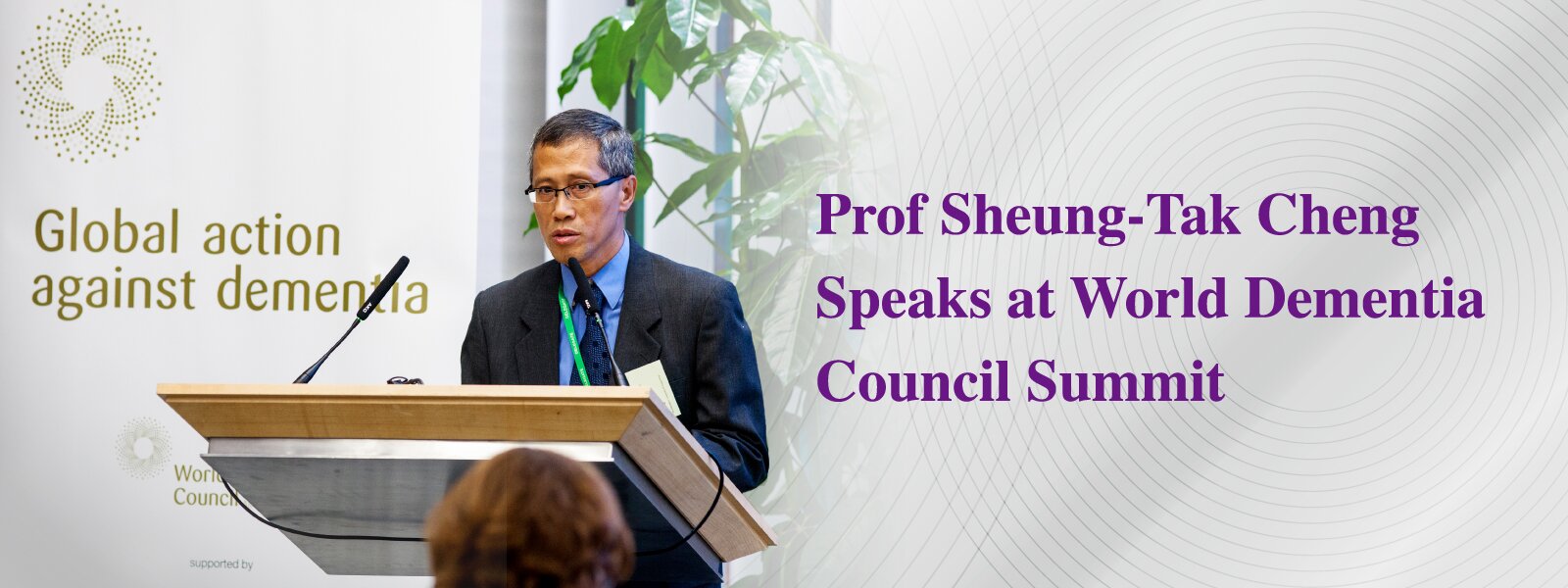Professor Sheung-Tak Cheng Speaks at World Dementia Council Summit

Professor Sheung-Tak Cheng, Chair Professor of Psychology and Gerontology at the Department of Health and Physical Education, The Education University of Hong Kong, and a brain health expert focusing on dementia care, was invited to give a talk and participate in the prestigious World Dementia Council Summit on 5 December 2018.
The World Dementia Council was established during the G8 (now G7) Summit in 2013. Professor Cheng was invited in his capacity as Emeritus Member of the Global Council on Brain Health and to contribute to an “Asia-global dialogue” about key issues. The Global Council on Brain Health issued the first global guidelines on participation in cognitively stimulating activities and brain health (published in English, Chinese, Spanish, French and Latin). Professor Cheng was the only Asian speaker invited to the Summit, other than representatives from Japan which is a G7 country.
The Summit puts dementia on the international agenda, sets goals, and commits global leaders to collective action to meet this significant health challenge. In the Brain Health and Public Policy Challenge panel, Professor Cheng delivered a talk on the challenges of defeating dementia by 2025 and discussed important international policy priorities.
The Summit attracted global media coverage. Participants included eminent scientists from around the world, ministers from the Japanese, Netherlands and UK governments; chief executive officers and officials from the Organisation for Economic Co-operation and Development, the World Health Organization, the Alzheimer’s Association, the Alzheimer’s Society, the National Institute of Mental Health, and the National Institute on Aging; and David Cameron (former UK prime minister) and Maria Shriver (former First Lady of California, award-winning journalist and media personality). The level of discourse by these distinguished participants, leading to a roadmap to defeat dementia by 2025, was unparalleled.



